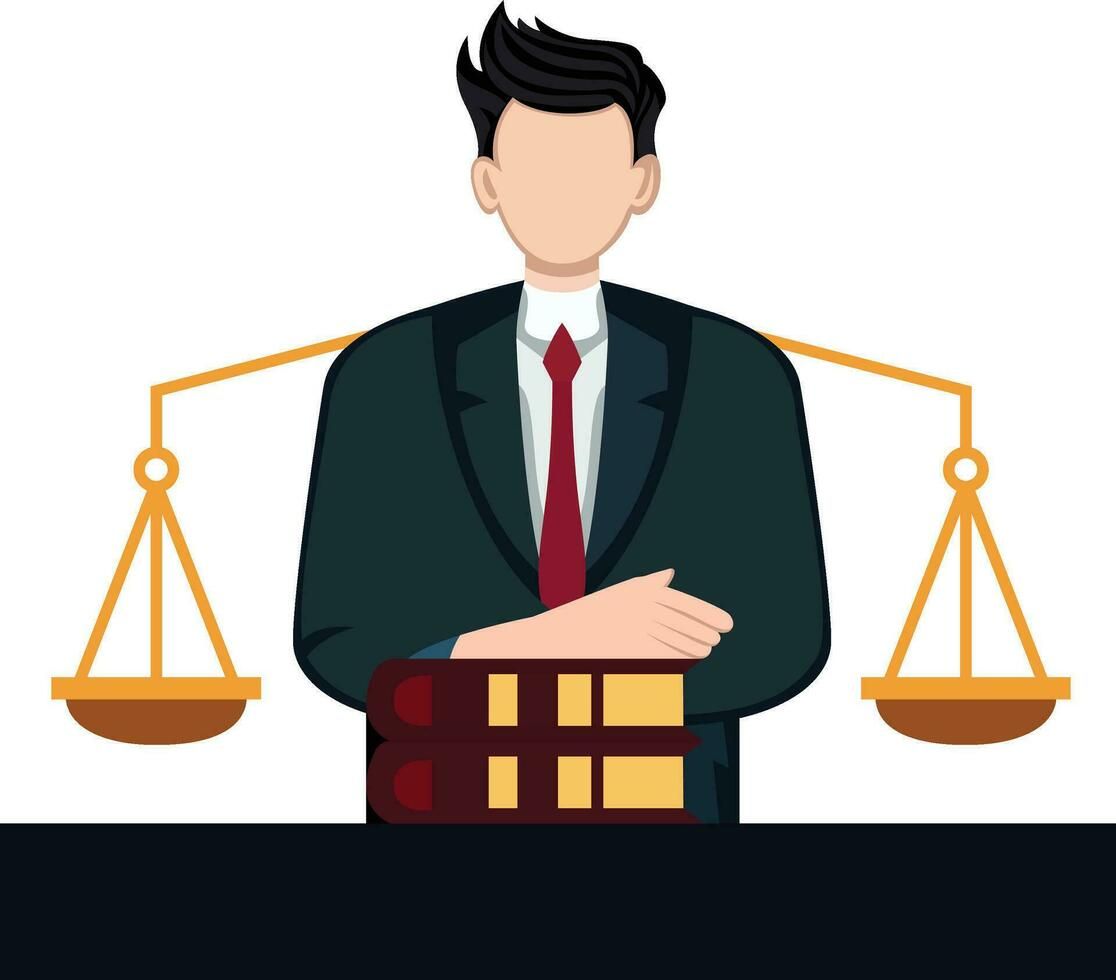Disability Claims and Cases Won!

National Leaders in Social Security Disability Law Attorney John E. Horn of the law firm of Horn & Kelley, PC , just won another Social Security Disability case, this one at the Reconsideration level, step 2 of the Social Security Disability process. He won the claim of a 58 year old Homer Glen Social Security Disability applicant who suffered from sciatica, back and foot pain, HBP, depression and anxiety. We Can Handle Homer Glen Disability Claims at All Levels Do not make the same mistake so many others have, call us before you file. We can handle your claim from the very beginning. We apply for Homer Glen Social Security Disability claimants online. Applications for Social Security Disability benefits have a seventy percent chance of being denied. Then it is necessary to file an appeal called reconsideration. We request reconsideration for Homer Glen Social Security Disability applicants by filing online. Eighty-five percent of claims are denied at reconsideration. Then it is necessary to file another appeal requesting a hearing by an administrative law judge. We request hearings for Homer Glen Social Security Disability applicants online. Homer Glen Social Security Disability claims are heard in the Orland Park hearing office. Many claims are won at the hearing level, but if you do not win, an appeal must be filed with the Appeals Council. Like everyone else, Homer Glen Social Security Disability applicants file their appeals in Falls Church, Virginia, by fax or mail. The Appeals Council denies eight out of ten appeals. Social Security used to allow sixty-five percent of all claims, but now it is allowing only forty percent. We aim to win every claim without a hearing, but Social Security is just a big insurance company, and like any other insurance company, it only wants to take in premiums and not pay benefits. That means you need a Social Security Disability Lawyer who will if necessary take your case to the United States District Court, the United States Court of Appeals, or even the United States Supreme Court. Homer Glen Social Security Disability applicants file suit against Social Security in the United States District Court in Chicago. If Homer Glen Social Security Disability applicants do not win in the District Court, they appeal to the United States Court of Appeals for the Seventh Circuit in Chicago. Free Consultation, No Fee Unless We Win When you apply for Social Security Disability, make sure you hire a local fighter, a lawyer who can take your case to the United States District Court or United States Court of Appeals if necessary. You have at least a fifty percent better chance of winning with a fighting lawyer who can take your case to the United States District Court, the United States Court of Appeals or even the United States Supreme Court. Visit our website at www.johnehornattorney.com . We are national leaders in Social Security Disability law with more cases published in the Forum of the National Organization of Social Security Claimants’ Representatives than anyone else in the country for the last three years. We show other lawyers how to win. Horn & Kelley won nineteen out of twenty decisions in 2017 in the United States District Court and four out of four decisions in the United States Court of Appeals in 2017. We have represented many Homer Glen Social Security Disability applicants successfully. Horn & Kelley are attorneys who represent people on Social Security Disability claims at every level in Chicagoland and Northwest Indiana. Horn & Kelley has offices in Chicago , Tinley Park , and La Grange , Illinois, as well as Highland , Indiana. Their Chicago office serves Southwest Chicago. Their Tinley Park office serves Chicago’s south and southwest suburbs, including Homer Glen. Their LaGrange office serves Chicago’s west suburbs. Their Highland office serves Northwest Indiana. They have represented more than 5,000 clients in the past twenty-five years. If you are a Homer Glen Social Security Disability applicant, get a free evaluation of your Social Security Disability claim and call Horn & Kelley at 888-921-5297. A Homer Glen Social Security Disability applicant would ordinarily make an appointment at our Tinley Park office, depending on what is convenient for you. Horn & Kelley practice only in the field of Social Security Disability. Follow Horn & Kelley on X @HornKelleyLaw and like us on Facebook.

National Leaders in Social Security Disability Law Attorney John E. Horn of the law firm of Horn & Kelley, PC , just won another Social Security Disability case, this one at the application level, step 1 of the Social Security Disability process. He won the claim of a 58 year old Beecher Social Security Disability applicant who suffered from Right eye vision loss, double vision, back pain, HBP, numbness in fingertips and feet swelling. We Can Handle Beecher Disability Claims at All Levels Do not make the same mistake so many others have, call us before you file. We can handle your claim from the very beginning. We apply for Beecher Social Security Disability claimants online. Applications for Social Security Disability benefits have a seventy percent chance of being denied. Then it is necessary to file an appeal called reconsideration. We request reconsideration for Beecher Social Security Disability applicants by filing online. Eighty-five percent of claims are denied at reconsideration. Then it is necessary to file another appeal requesting a hearing by an administrative law judge. We request hearings for Beecher Social Security Disability applicants online. Beecher Social Security Disability claims are heard in the Orland Park hearing office. Many claims are won at the hearing level, but if you do not win, an appeal must be filed with the Appeals Council. Like everyone else, Beecher Social Security Disability applicants file their appeals in Falls Church, Virginia, by fax or mail. The Appeals Council denies eight out of ten appeals. Social Security used to allow sixty-five percent of all claims, but now it is allowing only forty percent. We aim to win every claim without a hearing, but Social Security is just a big insurance company, and like any other insurance company, it only wants to take in premiums and not pay benefits. That means you need a Social Security Disability Lawyer who will if necessary take your case to the United States District Court, the United States Court of Appeals, or even the United States Supreme Court. Beecher Social Security Disability applicants file suit against Social Security in the United States District Court in Chicago. If Beecher Social Security Disability applicants do not win in the District Court, they appeal to the United States Court of Appeals for the Seventh Circuit in Chicago. Free Consultation, No Fee Unless We Win When you apply for Social Security Disability, make sure you hire a local fighter, a lawyer who can take your case to the United States District Court or United States Court of Appeals if necessary. You have at least a fifty percent better chance of winning with a fighting lawyer who can take your case to the United States District Court, the United States Court of Appeals or even the United States Supreme Court. Visit our website at www.johnehornattorney.com . We are national leaders in Social Security Disability law with more cases published in the Forum of the National Organization of Social Security Claimants’ Representatives than anyone else in the country for the last three years. We show other lawyers how to win. Horn & Kelley won nineteen out of twenty decisions in 2017 in the United States District Court and four out of four decisions in the United States Court of Appeals in 2017. We have represented many Beecher Social Security Disability applicants successfully. Horn & Kelley are attorneys who represent people on Social Security Disability claims at every level in Chicagoland and Northwest Indiana. Horn & Kelley has offices in Chicago , Tinley Park , and La Grange , Illinois, as well as Highland , Indiana. Their Chicago office serves Southwest Chicago. Their Tinley Park office serves Chicago’s south and southwest suburbs, including Beecher. Their LaGrange office serves Chicago’s west suburbs. Their Highland office serves Northwest Indiana. They have represented more than 5,000 clients in the past twenty-five years. If you are a Beecher Social Security Disability applicant, get a free evaluation of your Social Security Disability claim and call Horn & Kelley at 888-921-5297 . A Beecher Social Security Disability applicant would ordinarily make an appointment at our Tinley Park office, depending on what is convenient for you. Horn & Kelley practice only in the field of Social Security Disability. Follow Horn & Kelley on X @HornKelleyLaw and like us on Facebook .

National Leaders in Social Security Disability Law Attorney John E. Horn of the law firm of Horn & Kelley, PC , just won another Social Security Disability case, this one at application, step 1 of the Social Security Disability process. His client was a 63 year old Cicero disability applicant with congestive heart failure, chest pain, shortness of breath and osteoporosis. We have represented many other Cicero disability claimants successfully. We Can Handle Cicero Disability Claims at All Levels Do not make the same mistake so many others have, call us before you file. We can handle your claim from the very beginning. A Cicero disability applicant would ordinarily make an appointment with us at our LaGrange office. We apply for Cicero disability claimants by filing online. Applications for Social Security Disability benefits have a seventy percent chance of being denied. Then it is necessary to file an appeal called reconsideration. We request reconsideration for Cicero disability applicants by filing their appeals online. Most claims are denied at reconsideration. Then it is necessary to file another appeal requesting a hearing by an administrative law judge. We request hearings for Cicero disability applicants by filing online. Many claims are won at the hearing level, but if you do not win, an appeal must be filed with the Appeals Council. Like everyone else who appeals to the Appeals Council, Cicero disability applicants file their appeals in Falls Church, Virginia, by fax or mail. The Appeals Council denies eight out of ten appeals. Social Security used to allow sixty-five percent of claims overall, but now it is allowing only forty percent of claims. We aim to win every claim without a hearing, but Social Security is just a big insurance company, and like any other insurance company, it only wants to take in premiums and not pay benefits. That means you need a Social Security Disability Lawyer who will if necessary take your case to the United States District Court, the United States Court of Appeals, or even the United States Supreme Court. Cicero disability applicants file suit against Social Security in the United States District Court in Chicago. If Cicero disability applicants do not win in the District Court, they appeal to the United States Court of Appeals for the Seventh Circuit in Chicago. Free Consultation, No Fee Unless We Win When you apply for Social Security Disability, make sure you hire a local fighter, a lawyer who can take your case to the United States District Court or United States Court of Appeals if necessary. You have at least a fifty percent better chance of winning with a fighting lawyer who can take your case to the United States District Court, the United States Court of Appeals or even the United States Supreme Court. Visit our website at www.johnehornattorney.com . We are national leaders in Social Security Disability law with more cases published in the Forum of the National Organization of Social Security Claimants’ Representatives than anyone else in the country for the last three years. We show other lawyers how to win. Horn & Kelley won nineteen out of twenty decisions in 2017 in the U. S. District Court and four out of four decisions in the U. S. Court of Appeals in 2017. We have represented many Cicero disability applicants. Horn & Kelley are lawyers who represents disability claimants at every level in Chicagoland, Northwest Indiana. Horn & Kelley has offices in Chicago , Tinley Park , and La Grange , Illinois, as well as Highland, Indiana. Their Chicago office serves Southwest Chicago. Their Tinley Park office serves Chicago’s south and southwest suburbs. Their LaGrange office serves Chicago’s west suburbs, including Cicero disability applicants. Their Highland office serves Northwest Indiana. We have represented more than 5,000 clients in the past twenty-five years. If you are a Cicero disability applicant, get a free evaluation of your Social Security Disability claim and call Horn & Kelley at 888-921-5297. Horn & Kelley practice law only in the field of Social Security Disability. Follow Horn & Kelley on X @HornKelleyLaw and like us on Facebook .

National Leaders in Social Security Disability Law Attorney John E. Horn of the law firm of Horn & Kelley, PC , just won another Social Security Disability case, this one at application, step 1 of the Social Security Disability process. His client was a 64year old Stickney disability applicant with bilateral carpal tunnel syndrome, arthritis, bilateral knee surgeries, history of brain tumor, slurred speech, high blood pressure and anxiety We have represented many other Stickney disability claimants successfully.

Heart disease is quite prevalent in the United States. According to recent statistics, heart disease affects nearly half of the country’s population. And, many different kinds of heart conditions exist. Each condition has its own unique symptoms. For example, the symptoms of heart disease in the blood vessels are different than symptoms of a weak heart muscle. Some symptoms of certain heart conditions can make life difficult. Symptoms like shortness of breath, dizziness, and fatigue can greatly affect one’s quality of life and their ability to work. For this reason, certain heart conditions qualify for Social Security Disability. Discover three of those heart conditions. 1. Ischemic Heart Disease Ischemic heart disease is a type of cardiomyopathy caused by coronary artery disease. Cardiomyopathy is a disease that primarily affects the heart muscle. When a person has this type of heart disease, the heart muscle becomes enlarged or rigid, which makes it hard for the heart to pump blood to the rest of the body. Ischemic heart disease affects 1 in 100 people , making it the most common type of cardiomyopathy. People who smoke, have high blood pressure, or high cholesterol levels are at a higher risk of getting ischemic heart disease. Common symptoms associated with ischemic heart disease include: Pain, tightness, or pressure in the chest Dizziness or feeling lightheaded Feeling of heartburn or indigestion Palpitations Shortness of breath Ischemic heart disease can lead to heart failure. In order to collect Social Security Disability, those with this heart condition must be able to prove that they have serious limitations and cannot perform daily activities. Tests that diagnose the condition need to have been completed within the last year. 2. Chronic Heart Failure/Congestive Heart Failure Chronic heart failure occurs when the heart does not pump blood as well as it should. This condition becomes progressively worse over time. Two primary types of chronic heart failure exist. These include systolic heart failure and diastolic heart failure. During systolic heart failure, the left ventricle of the heart cannot contract completely. When this happens, the heart cannot adequately pump blood to the rest of the body. Diastolic heart failure occurs when the chambers of the heart cannot fill properly with blood. This prevents the heart from pumping enough blood out to the body. Both types of heart failure can occur at the same time. No matter what type of heart failure a person has, they are at risk for the blood backing up into other parts of the body. When the blood backs up, it can cause congestion of the liver, lungs, and other systems in the body. Common symptoms of chronic heart failure include: Shortness of breath Fluid retention Swelling in the feet, ankles, and belly Increased heart rate Persistent coughing The symptoms of CHF can greatly reduce one’s quality of life. A person needs to meet certain criteria in order to qualify for Social Security Disability benefits. One such criteria is that those with chronic heart failure need to prove they have undergone continuous treatment. 3. Recurrent Arrhythmias Disturbances in the heart’s electrical system produce an abnormal heartbeat called an arrhythmia. An arrhythmia can either cause the heart to beat too quickly (tachycardia), too slowly (bradycardia), or irregularly. Any of these scenarios can have negative repercussions for the person who experiences the arrhythmia. The three different types of arrhythmias include atrial fibrillation (AFib), ventricular fibrillation, and heart block. Of these three, AFib is the most common. This type of arrhythmia affects the upper chambers of the heart, also known as the atria. Ventricular fibrillation affects the lower chambers, or the ventricles. This type of arrhythmia can lead to cardiac arrest or sudden death. During heart block, the heart beats too slowly. Some people with arrhythmias will not have any symptoms. For those that do, some common symptoms of arrhythmias include: Fluttering in the chest Fainting or near fainting Dizziness Shortness of breath Chest pain Some people can actually feel their heart beating too slowly, too quickly, or irregularly. Having an arrhythmia does not automatically qualify someone for Social Security Disability. The arrhythmia must be present on a regular basis for at least one year . The recurrent arrhythmia must also be severe enough to prevent the person who has it from working. Other criteria to qualify for benefits include a recurrence of the arrhythmia despite getting treated for it and the arrhythmia is not from a reversible condition. If you have any of the above-mentioned heart conditions, or any other qualifying impairment , call Horn & Kelley, PC. today. Our experienced attorneys in the greater Chicago and NW Indiana area can help you obtain the Social Security Disability benefits that you deserve. We look forward to speaking with you soon.

National Leaders in Social Security Disability Law Social Security Disability Lawyer John E. Horn of the law firm of Horn & Kelley, P.C., just won another Social Security Disability case, this one at the application level, step 1 of the Social Security Disability process. Our client was a 59 year old Merrionette Park disability […]
The post Application Approval in less than 60 days for Merrionette Park Disability Claimant!! appeared first on .

Social Security Disability Application Approval for Frankfort Claimant with Horn & Kelley Attorneys!
National Leaders in Social Security Disability Law Attorney John E. Horn of the law firm of Horn & Kelley, PC, just won another Social Security Disability case, this one at the first level, step 1 of the Social Security Disability process. He won the claim of a 64 year old Frankfort Social Security Disability […]
The post Social Security Disability Application Approval for Frankfort Claimant with Horn & Kelley Attorneys! appeared first on .

National Leaders in Social Security Disability Law Attorney John E. Horn of the law firm of Horn & Kelley, PC, just won another Social Security Disability case, this one at the application level, step 1 of the Social Security Disability process. He won the claim of a 57 year old Lemont Social Security Disability applicant […]
The post Application Approval for Lemont Claimant with Horn & Kelley!! appeared first on .

National Leaders in Social Security Disability Law Attorney John E. Horn of the law firm of Horn & Kelley, PC, just won another Social Security Disability case, this one at the reconsideration level, step 2 of the Social Security Disability process. He won the claim of a 62 year old Riverdale Social Security Disability applicant […]
The post Riverdale Claimant gets approved at Reconsideration with Horn & Kelley!! appeared first on .

National Leaders in Social Security Disability Law Attorney John E. Horn of the law firm of Horn & Kelley, PC, just won another Social Security Disability case, this one at the hearing level, step 3 of the Social Security Disability process. He won the claim of a 32 year old Chicago Social Security Disability applicant […]
The post Fully Favorable Decision at Hearing for Chicago Claimant with Horn & Kelley Attorney!! appeared first on .

National Leaders in Social Security Disability Law Attorney John E. Horn of the law firm of Horn & Kelley, PC, just won another Social Security Disability case, this one at reconsideration level, step 2 of the Social Security Disability process. His client was a 29 year old Gary disability applicant with Wolfram syndrome causing blindness […]
The post Gary Claimant Wins Their Social Security Disability Claim at Reconsideration Level with Horn & Kelley! appeared first on .

National Leaders in Social Security Disability Law Attorney John E. Horn of the law firm of Horn & Kelley, PC, just won another Social Security Disability case, this one at the application level, step 1 of the Social Security Disability process. He won the claim of a 62 year old Tinley Park Social Security Disability […]
The post Another Application Approval for Tinley Park Claimant with Horn & Kelley Law!! appeared first on .

National Leaders in Social Security Disability Law Attorney John E. Horn of the law firm of Horn & Kelley, PC, just won another Social Security Disability case, this one at hearing step 3 of the Social Security Disability process. His client was a 53 year old Naperville disability applicant with prostate cancer, lumbar spine degenerative […]
The post Horn & Kelley Attorneys Win Again at Hearing for Naperville Claimant!! appeared first on .

National Leaders in Social Security Disability Law Social Security Disability Lawyer John E. Horn of the law firm of Horn & Kelley, P.C., just won another Social Security Disability case, this one at application level, step 1 of the Social Security Disability process. Our client was a 57 year old Chicago disability applicant who suffered […]
The post Application Approval for Chicago Horn & Kelley Claimant!! appeared first on .

National Leaders in Social Security Disability Law Attorney John E. Horn of the law firm of Horn & Kelley, PC, just won another Social Security Disability case, this one at the reconsideration level, step 2 of the Social Security Disability process. He won the claim of a 51 year old Richton Park Social Security Disability […]
The post Reconsideration Approval for Horn & Kelley Richton Park Claimant!! appeared first on .
Connect with our office at 881-921-5297 for any social security claim questions.
